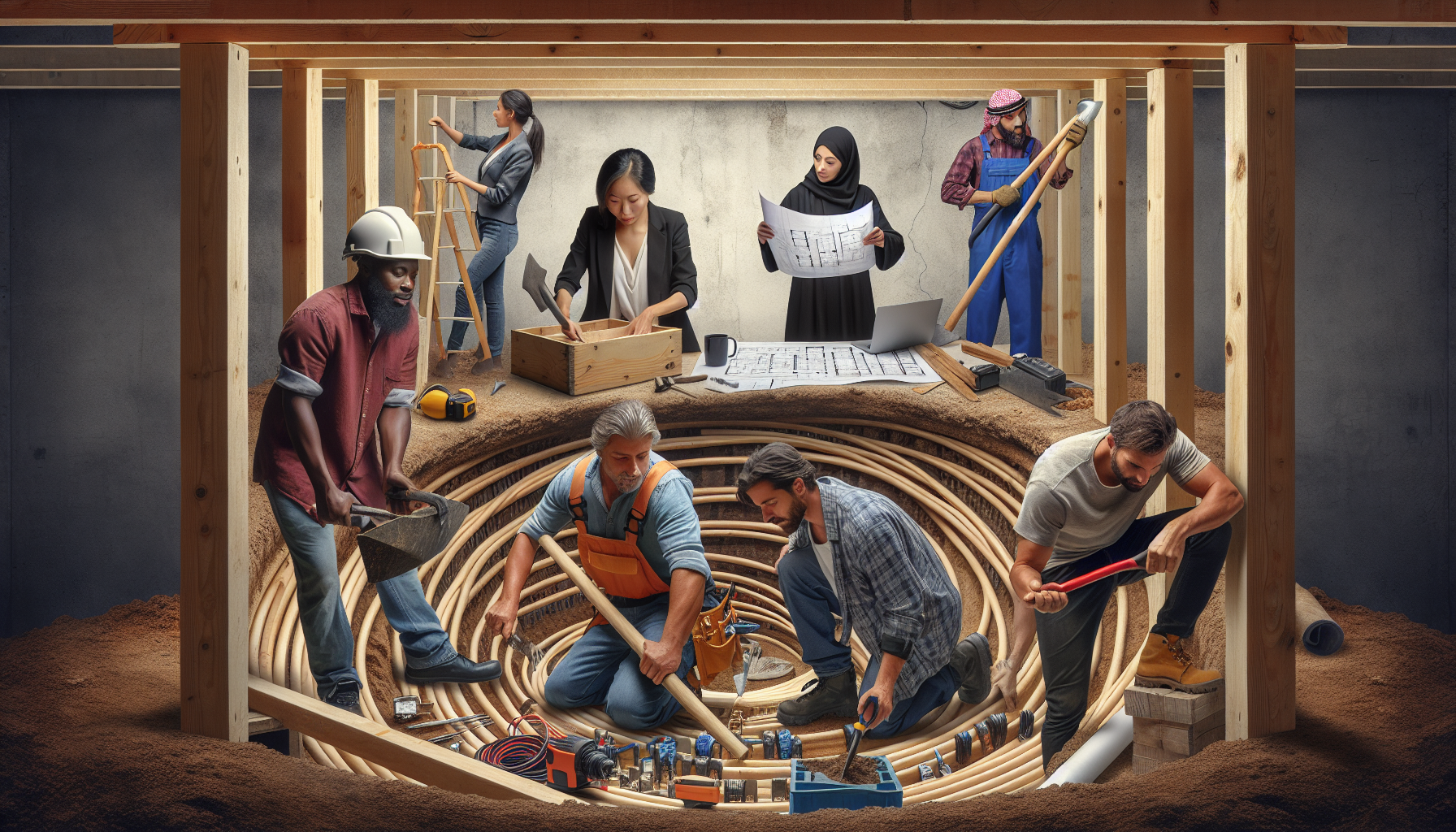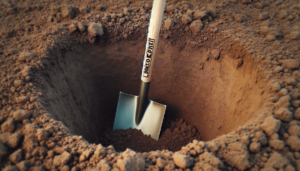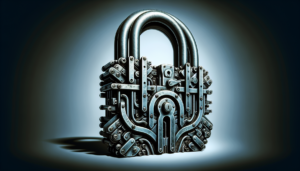
In today’s unpredictable world, the importance of disaster preparedness cannot be overstated. While individuals may take various measures to protect themselves and their loved ones, the role of prepper communities in disaster preparedness is often overlooked. These communities, comprised of like-minded individuals who actively prioritize emergency planning and self-sufficiency, play a crucial role in fostering a collective sense of security and resilience. By sharing knowledge, resources, and skills, prepper communities not only enhance their members’ ability to weather unforeseen events but also contribute to the overall preparedness of the wider society. In this article, we will explore the multifaceted role these communities play in disaster preparedness.
Understanding Prepper Communities
Defining prepper communities
Prepper communities are groups of individuals who prioritize disaster preparedness and self-sufficiency. They share common goals and values centered around equipping themselves with the necessary resources, skills, and knowledge to survive and thrive during emergencies and disasters. These communities often engage in activities such as stockpiling food and water, learning essential survival skills, and developing emergency response plans.
The goals and values of preppers
The primary goal of prepper communities is to ensure the well-being and safety of their members in the face of potential disasters. They value self-reliance, independence, and resilience, striving to reduce their dependence on external resources and systems. Preppers understand the inherent risks and vulnerabilities present in modern society and aim to protect themselves and their loved ones by being prepared for any eventuality.
Types of prepper communities
Prepper communities come in various forms, ranging from small groups of like-minded individuals to larger, organized communities. Some preppers prefer to join existing survivalist or homesteading communities, while others create their own groups based on shared interests and goals. Additionally, there are online forums and social media groups where preppers connect, exchange ideas, and offer support to one another. The diversity of prepper communities allows individuals to find a suitable group that aligns with their specific needs and preferences.
Disaster Preparedness and Preppers
The importance of disaster preparedness
Disasters can strike unexpectedly, causing significant disruption, loss of life, and damage to infrastructure. By prioritizing disaster preparedness, prepper communities play a crucial role in mitigating the impact of such events. They understand that being adequately prepared can mean the difference between survival and hardship. Preppers recognize the importance of assessing potential risks, creating comprehensive emergency plans, and stockpiling necessary supplies to increase their chances of survival during crises.
Prepper communities’ role in disaster preparedness
Prepper communities actively contribute to disaster preparedness in several ways. First, their emphasis on self-sufficiency reduces the strain on external resources and emergency services during disasters. By having their own supplies and emergency plans in place, preppers decrease their reliance on limited aid and support, allowing essential resources to be allocated to those who need them most. Additionally, prepper communities often collaborate with local authorities to offer their expertise and resources, enhancing overall emergency response capabilities.
Sharing Knowledge and Skills
Education within prepper communities
Education is a fundamental aspect of prepper communities, as it enables individuals to acquire the knowledge and skills necessary for survival. Communities provide opportunities for members to learn from one another through workshops, classes, and training sessions. Topics may include first aid, food preservation, self-defense, navigation, and other essential skills. By continuously learning and honing these skills, prepper communities ensure that their members are well-equipped to handle various scenarios that may arise during disasters.
Training and skill development
Prepper communities recognize the importance of training and skill development to improve their members’ preparedness. They often organize regular training exercises and simulations to practice various survival techniques and emergency procedures. This hands-on approach helps individuals become more confident and efficient in their ability to respond effectively during crises. Additionally, prepper communities may bring in external experts or instructors to provide specialized training in areas such as search and rescue, fire safety, or communication systems.
Workshops and seminars
To foster knowledge sharing and community engagement, prepper communities frequently organize workshops and seminars. These events offer a platform for experts and experienced members to share their insights, expertise, and best practices on disaster preparedness. Topics covered may include sustainable farming practices, alternative energy solutions, communication strategies, and other relevant subjects. Workshops and seminars also provide opportunities for networking and building connections, allowing preppers to expand their knowledge and support network.
Enhancing Emergency Response
Collaboration with local authorities
Prepper communities understand the importance of collaboration with local authorities to enhance emergency response capabilities. They recognize that while self-sufficiency is crucial, it is equally important to work in conjunction with existing emergency services. Preppers may establish partnerships with local law enforcement agencies, fire departments, and other first responders to offer their resources, skills, and knowledge during disasters. This collaboration ensures a more coordinated and effective response, maximizing the overall resilience of the community.
Supporting emergency services
In times of disaster, emergency services often face overwhelming demands. Prepper communities can provide valuable support by alleviating some of this burden. For example, preppers with medical backgrounds can assist in providing first aid and basic healthcare services. Additionally, prepper communities may have access to specialized equipment or communication systems that can supplement existing emergency infrastructure. By offering their support and resources, prepper communities contribute to a more efficient and resilient response to emergencies.
Effective communication networks
Communication is critical during emergencies, as it aids in coordination, information dissemination, and maintaining the safety and well-being of individuals. Prepper communities recognize the importance of establishing robust communication networks within their groups and connecting with other like-minded communities. They may utilize various tools and technologies such as two-way radios, internet forums, or dedicated communication channels to ensure reliable and efficient information flow. These networks enable preppers to share critical updates, exchange resources, and coordinate response efforts effectively.
Community Building and Support
Building strong social connections
Prepper communities emphasize the value of building strong social connections among their members. These connections foster mutual trust, cooperation, and a sense of belonging. By building a supportive social network, preppers create a community where individuals can rely on one another during times of need. This solidarity translates into increased resilience and the ability to withstand challenging situations, both physically and emotionally.
Providing emotional support
Disasters and crises often cause immense stress, fear, and anxiety. Prepper communities understand the emotional toll these events can have on individuals and prioritize providing emotional support. Through frequent communication, group discussions, and sharing personal experiences, prepper communities create a safe space where members can express their concerns and find solace. This emotional support strengthens individual and collective well-being, contributing to a more resilient community.
Resource sharing and allocation
Prepper communities encourage resource sharing and allocation among their members. They recognize that during emergencies, certain individuals may have surplus supplies while others may face shortages. By facilitating resource sharing, prepper communities ensure that essential items, such as food, water, and medication, are distributed equitably among their members. This cooperative approach promotes unity, reduces individual vulnerabilities, and strengthens the overall preparedness and resilience of the community.
Promoting Self-Sufficiency
Advocating for self-reliance
Prepper communities serve as advocates for self-reliance by promoting the importance of individual preparedness. They highlight the vulnerabilities of relying solely on external systems and encourage individuals to take proactive steps towards self-sufficiency. Through education, training, and sharing of practical skills, prepper communities empower their members to be less dependent on external resources and more capable of taking care of themselves and their loved ones during crises.
Preservation of essential resources
Prepper communities place a strong emphasis on the preservation and conservation of essential resources. They recognize the finite availability of resources during emergencies and actively promote practices such as water conservation, energy efficiency, and responsible food storage. By adopting sustainable behaviors and reducing waste, preppers ensure that vital resources remain available for extended periods, benefiting both themselves and the larger community in times of need.
Developing sustainable practices
Prepper communities often prioritize the development and implementation of sustainable practices to enhance their long-term resilience. This includes practices such as rainwater harvesting, renewable energy generation, and organic gardening. By integrating sustainable practices into their everyday lives, preppers reduce their impact on the environment while simultaneously building self-sustaining systems. These practices not only contribute to the overall resilience of prepper communities but also promote sustainable living principles that benefit society as a whole.
Ensuring Effective Planning
Developing comprehensive disaster plans
Prepper communities recognize the importance of meticulous planning to address potential disasters effectively. They work together to develop comprehensive disaster plans that outline specific actions, roles, and responsibilities for each member. These plans cover various scenarios and consider factors such as evacuation routes, communication protocols, resource allocation, and medical support. By having well-thought-out strategies in place, preppers can respond quickly and efficiently during emergencies, minimizing risks and maximizing their chances of survival.
Evacuation strategies
Evacuation is often a necessary component of disaster response. Prepper communities understand the importance of having well-defined evacuation strategies tailored to their specific circumstances and geographical locations. They identify safe evacuation routes, establish rendezvous points, and determine transportation options to ensure members can evacuate safely and efficiently. Preppers may also consider establishing temporary shelter locations where members can regroup and support one another during the immediate aftermath of a disaster.
Emergency supply management
One of the primary responsibilities of prepper communities is the management of emergency supplies. They develop systems to monitor and maintain adequate levels of essential items such as food, water, medical supplies, and tools. Inventory management, rotation of supplies, and regular assessments are vital to ensure that the community remains well-prepared. Preppers also emphasize the importance of continuously expanding their supplies based on changing needs and potential risks, ensuring readiness for any future disasters.
Networking and Resource Exchange
Collaboration between prepper communities
Prepper communities understand the value of collaboration and networking with other like-minded groups. They recognize that no single community can possess all the necessary resources or expertise required during emergencies. By forging connections and partnerships, preppers enhance their collective resilience and leverage shared knowledge, skills, and resources. This collaboration enables the exchange of ideas, best practices, and support, fostering a stronger network of prepared communities.
Sharing knowledge and resources
Sharing knowledge and resources is a cornerstone of prepper communities. They actively engage in sharing information, tips, and strategies among their members. This exchange of knowledge allows individuals to benefit from different perspectives, experiences, and areas of expertise. Preppers may share information about reliable suppliers, alternative energy solutions, or effective emergency response strategies. Additionally, prepper communities may pool together resources to create shared stockpiles, ensuring sufficient supplies for everyone, especially during extended crises.
Bartering and trade
Prepper communities often encourage the practice of bartering and trade as a means of resource exchange. In situations where traditional commerce systems may be disrupted, bartering allows community members to obtain necessary items or services in exchange for goods they may have in surplus. This practice promotes self-sufficiency and fosters mutual support within the community. By establishing trusted networks for bartering and trade, preppers create alternative economies that can function even when conventional systems are compromised.
Creating Community Resilience
Strengthening community resilience
Prepper communities play a vital role in strengthening community resilience by fostering preparedness and self-sufficiency. Their focus on education, resource sharing, collaboration, and sustainable practices enhances the overall ability of the community to withstand and recover from disasters. By building a resilient community, preppers create a foundation of support, protection, and mutual aid that benefits all its members and contributes to the long-term sustainability of the community.
Rebuilding after disasters
In the aftermath of a disaster, prepper communities are well-positioned to support rebuilding efforts. Their preparation and stockpiling of essential supplies enable them to provide immediate assistance to those affected by the disaster. Prepper communities may engage in activities such as debris removal, home repairs, and the distribution of emergency relief supplies. Their collective knowledge, skills, and resources contribute to a more rapid and effective recovery, supporting individuals and the wider community in rebuilding their lives after the devastation of a disaster.
Supporting vulnerable populations
Prepper communities recognize the importance of supporting vulnerable populations during emergencies. They prioritize the well-being and inclusion of individuals who may be elderly, disabled, or otherwise lacking resources or support systems. By actively engaging in outreach programs and community initiatives, preppers work to ensure that no member of society is left behind during crises. This support may include providing transportation assistance, offering temporary shelter, or ensuring access to critical medical supplies and care.
Criticism and Misconceptions
Criticism of prepper communities
Prepper communities have faced criticism from various perspectives. Some argue that preppers’ focus on individual preparedness undermines collective response efforts and can lead to a fragmented society during crises. Others criticize preppers for perpetuating fear and paranoia, suggesting that their preparedness measures are excessive or irrational. Additionally, prepper communities have been associated with extreme ideologies or conspiracy theories, leading to further skepticism and criticism.
Addressing misconceptions
To address misconceptions, prepper communities often work to align themselves with broader emergency response initiatives and community organizations. They aim to demonstrate that their focus on preparedness is complementary to collective efforts rather than conflicting. By actively engaging with their local communities, preppers can bridge gaps in understanding and showcase the benefits of self-sufficiency, resource allocation, and collaboration. Through outreach programs and public education initiatives, prepper communities strive to dispel misconceptions and foster a more holistic understanding of their role in disaster preparedness.
Maintaining a balance with societal norms
Prepper communities understand the importance of maintaining a balance between their preparedness measures and societal norms. While their focus on self-sufficiency and resilience is driven by a desire to protect themselves and their loved ones, they recognize the need for integration and collaboration with the broader community. By actively participating in local governance, emergency planning, and community initiatives, prepper communities showcase their commitment to a cohesive society. They aim to strike a balance between their individual preparedness measures and collective responsibilities, ensuring that their actions contribute to the overall well-being and resilience of the community as a whole.
In conclusion, prepper communities play a significant role in disaster preparedness and contribute to the overall resilience of their members and the wider community. Through education, training, resource sharing, and collaboration with local authorities, preppers enhance emergency response capabilities and promote self-sufficiency. They build strong social connections, provide emotional support, and ensure resource allocation within their communities. Prepper communities advocate for self-reliance, sustainable practices, and effective planning while networking with other groups and promoting community resilience. Despite facing criticism and misconceptions, prepper communities strive to find a balance between individual preparedness and societal norms, ensuring their actions align with collective efforts in disaster preparedness and response.





